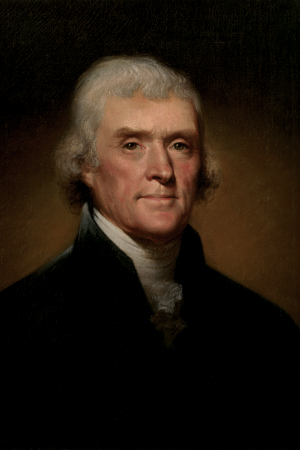Abstract
Medical ethics are one applied example of a very useful four-part framework of analysis that brings some coherence to philosophy and the moral perspectives and categories. Historically medical ethics have been able to incorporate facts and values, nature and nurture, and faith and reason. They are a resource that can provide cross-cultural understanding and enable ethical dialogue. In the political context, medical ethics can provide a well-balanced source of affirmation, moderation, and accommodation in a pluralistic world. Medical ethics have a lot to offer at this particular time in history, in part, because they bring some coherence to philosophy and they have the capacity to accommodate pluralism in a global community without coercion or alienation.

Power politics reaches an absurdity when there is a foreign policy of mutual assured destruction in which that power cannot be used without not only self-destruction, but the destruction of the foundations of much of life on earth. There is thus also a need for moral concepts of universal equality understood as a respect for individual personal dignity and our common humanity. It is the moral concept of universal equality that makes the accommodation of diversity and a wide variety of attributes possible.
Medical Ethics
As a physician I consider a respect for human life, understood as a respect for personal dignity and our common humanity, to be the primary moral principle of the medical profession. The Declaration of Geneva of the World Medical Association includes this principle of a respect for human life. A respect for human life is a moral assertion and at its foundation it is a self-affirmation and an affirmation of our common humanity.
Modern medicine, however, also considers human nature to be multidimensional. The four general principles of medical ethics are:
Beneficence - (the Golden Rule to do unto others as you would have them do unto you or a concept of reciprocity)
Nonmaleficence - (the Silver Rule or don’t do unto others what you don’t want them to do unto you. This is based on the concept of reversibility and the adage of “do no harm.”)
Justice - (social justice)
Autonomy - (individual rights)
These four principles recognize the individual, social, rational, and metaphysical / integrative dimensions of human nature. This is also an applied example of a very useful four-part framework of analysis that brings some coherence to moral and political philosophy. In this framework of analysis one looks at the individual as well as the social perspectives which are sometimes in tension. One also looks at the rational consequences of an action, but also at one’s duties and what are perceived to be the right principles for one’s actions, and these are also sometimes is tension. Indeed, most of the difficult or quandary questions in moral philosophy are not about good versus evil, but about choosing between two different perspectives of the good or between the lesser of two evils. This is a very useful four-part framework of analysis and not meant to come to a particular conclusion. Often the very difficult issues are settled by some agreed upon process that is felt to be at least fair and does justice to the ends, such as a vote by the people or a vote by a Supreme Court.
Medicine from the beginning has also involved both a science and an ethic, both facts and values. Medicine considers both nature and nurture and it is descriptive, but also prescriptive.
The Historic Origins of the Concept of Universal Equality
This four-part framework of analysis, based on the multidimensional aspects of human nature, can also be applied to the several origins of the concept of equality in Western Civilization and their incorporation into United States Constitutional Democracy.
The United States Declaration of Independence is written in the manner of Euclidean geometry. Its first moral assertion was that “all men are created equal,” and this put everything that followed, including life, liberty, and the pursuit of happiness in a moral context. We have struggled to live up to that ideal, but Jefferson, Madison, Tocqueville, Lincoln, and the great reformers, such as the women suffragettes and Martin Luther King, Jr., all considered the primary moral concept of United States Constitutional Democracy to be equality.
There were several origins of the concept of universal equality in Western Civilization. Canon Law, Roman Law, English common law, and the social contract theory associated with constitutional law each had a different source of moral authority. Each was based on a different type of ethical system and each focused on a different aspect of human nature.
Canon Law, for example, was based on the authority of God and was related primarily to what it understood to be the soul of man. It is based on a duty to “love God with all thy heart, and with all thy soul, and with all thy strength, and with all thy mind; and thy neighbor as thyself.” (Lev 19:18, Deut 6:5, Lk 10:27, Mk 12:29) The equal dignity and worth of all persons in this religious system derives from a belief that God not only created humanity, but that man and woman were also made in God’s image. It is based on a reverence for God and reciprocity towards one’s fellow man. Equality is intrinsic and not derived from one’s individual attributes, but from the relationship between God and humanity.
Roman Law, on the other hand, incorporated significant aspects of natural law. This was a perceived natural moral order in the universe which could be understood by all persons because it was believed that all persons share a capacity for right reason, the ability to know right from wrong. It was also based on a concept of reversibility which requires reason, imagination and empathy.
English common law in feudal society derived its moral authority from yet another source -- not from God or nature, but from social custom and tradition. It was based on the traditional rights and responsibilities in society. Traditional English rights progressively became a basis for communal solidarity.
Finally, the social contract theory associated with constitutional law derives its moral authority beginning with the individual in a state of nature concerned primarily about his own safety and happiness. Its very premise is that not only are all free and equal in a state of nature, but that everyone is also endowed with natural rights which they are entitled to defend. It is based on what we now describe as human rights and a just claim to resist the violation of those rights.
United States Constitutional Democracy incorporates and balances each of these four ethical systems as they apply to the several aspects of universal equality and the coercive powers of government. It incorporates each of these concepts of equality with a division and balancing of power into legislative, judicial, and executive branches. Religion and the freedom of speech and opinion are then separated from the coercive powers of government.
Why Now? The “Nuclear Trap”
The political tragedies of the 20th Century bore witness to the need for a respect for human dignity and our common humanity. In 1948, the United Nations, for example, thus passed The Universal Declaration of Human Rights. The Preamble begins, “Whereas recognition of the inherent dignity and of the equal and inalienable rights of all members of the human family is the foundation of freedom, justice and peace in the world.”
Since World War II, however, there has also been a concern that our technical progress has far exceeded our biological adaptive mechanisms and cultural moral structures. In evolutionary theory this is referred to as the “nuclear trap,” We already have nuclear defense policies of mutual assured destruction with response times measured in minutes. There is a need for a balance of power, but power politics also reaches an absurdity when that power cannot be used without not only self-destruction, but the destruction of the foundations of much of life on earth. Among the problems that threaten the the future of all peoples are those of nuclear or biological warfare, and the level of totalitarianism and terrorism which technology has made possible. It is difficult to imagine an adequate resolution of global problems without a concept of universal equality and a respect for human life and our common humanity. The advantages of cooperation are enormous; cooperation requires community; and to live in a community requires some moral constraint. We now live in a pluralistic global community. There is a need for moral constraint to build a more stable world order.
Discord and alienation often result when one of our levels of understanding is emphasized to the exclusion of the others or when as a society we develop ideologies that relate to one of our concepts of metaphysics, nature, society, or the individual, but to the exclusion of the others. Singular theories that have based order and moral authority on only individual materials needs, society, reason, or a metaphysical/religious concept have often led to individual and communal tragedy. By focusing on even perhaps a particular truth, in a quest for certainty, they have too easily justified the use of coercive force or been the cause of alienation. The quest for certainty often seeks truth in only one parameter and then the end is often used to justify the means.
Ideas and moral values are important, for our survival, well-being, and the enjoyment of individual freedom are not inevitable. They are contingent, to a large degree, on our willingness and ability as moral agents to place our free will within ethical constraints. It is indeed the self-imposed ethical and moral foundations of government that change mere obedience to coercive powers of government into a sense of consensual responsibility for a moral duty, a just order, the common good, and human rights. The coercive powers of government are also less needed when those moral values and ethical constraints are incorporated into the culture and the intermediary institutions, such as voluntary associations, education, law, medicine, economics, science, religion, and philosophy.
From the perspective of medical ethics, a respect for personal dignity and our common humanity is the underlying foundation of the four principles of autonomy, justice, non-maleficence, and beneficence. This is one applied example of a very useful four-part framework of analysis This multidimensional understanding of human nature brings some coherence to moral and political philosophy.
Medical ethics are also one source of an applied moral philosophy that can enable cross-cultural understanding and ethical dialogue. Medical ethics have a lot to offer moral and political philosophy at this particular time in history because they have at least the capacity to provide a well-balanced source of affirmation, moderation, and accommodation in a pluralist global community without coercion or alienation.




